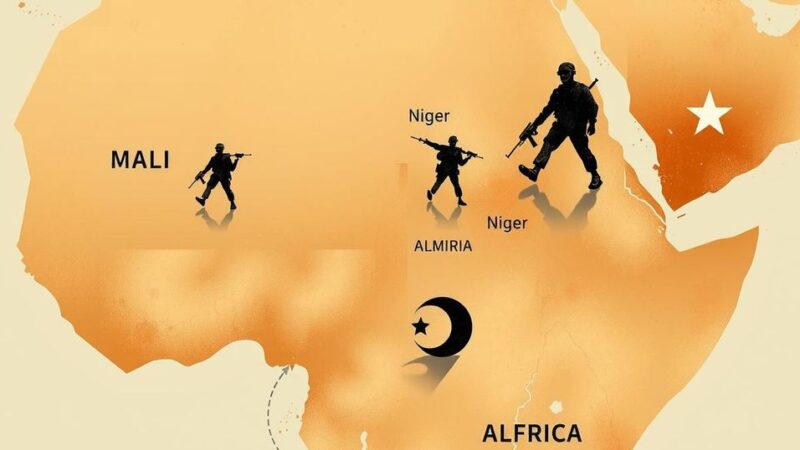The United Nations reports that over 420,000 children in the Amazon are adversely affected by severe drought conditions in Brazil, Colombia, and Peru. UNICEF calls for increased climate financing to support these vulnerable populations amid rising food insecurity and health risks. The drought has been linked to the El Niño climate phenomenon and exacerbated by ongoing environmental challenges, despite recent reductions in deforestation rates in both Brazil and Colombia.
According to the United Nations, more than 420,000 children in the Amazon region are currently experiencing severe impacts from unprecedented drought conditions affecting Brazil, Colombia, and Peru. This dire situation, which has persisted since last year, is particularly concerning for Indigenous and other communities that depend on river transport. UNICEF’s Executive Director, Catherine Russell, emphasized the urgent need for increased climate financing to address the challenges faced by these vulnerable populations, particularly before the upcoming COP29 summit in Azerbaijan. The ongoing drought has resulted in acute water shortages, leading to food insecurity and elevated risks of malnutrition among children. In Brazil, over 1,700 schools and 760 health clinics have either shut down or become inaccessible due to low river levels. Similar impacts have been observed in Colombia, where water scarcity has halted classes for 130 schools, and in Peru, where more than 50 healthcare facilities are unreachable. UNICEF has stated that it requires $10 million in the coming months to assist affected communities, including the provision of potable water and mobile health services. The drought has been attributed both to the El Niño climatic phenomenon and the broader repercussions of the climate crisis. Experts from NASA and the EU’s Copernicus Climate Change Service have indicated that diminished rainfall and lower river levels have exacerbated environmental calamities, including forest fires and agricultural losses across the Amazon Basin. Notably, Brazilian Environment Minister Marina Silva has asserted that it remains feasible for governments to address climate change challenges despite current adversities. She referenced a reported 30 percent reduction in deforestation rates in Brazil’s Amazon over the past year, the smallest area lost in nearly a decade. Such measures follow President Luiz Inacio Lula da Silva’s commitment upon returning to office to enhance enforcement of environmental protections. Meanwhile, Colombia has likewise reported a historic decrease in deforestation by 36 percent in 2023, indicating potential progress in sustainable environmental management.
The report from the United Nations highlights the urgent need for immediate action to safeguard the well-being of children in the Amazon basin amidst a devastating drought that has evolved over the past year. UNICEF’s advocacy for enhanced climate financing is particularly critical, as many Indigenous and local communities face daily challenges due to water scarcity, food shortages, and health service disruptions. The backdrop of environmental crises exacerbated by climate change sets the stage for a broader dialogue at international climate summits, like COP29, where the welfare of vulnerable populations is at stake. Furthermore, the interplay of natural phenomena, such as El Niño, alongside human-induced factors contributing to climate degradation, reflects the complex dynamics of the Amazon ecosystem, prompting regional and global leaders to find sustainable solutions to not only protect the environment but also ensure the health and safety of those living within it.
In summary, the alarming report from the United Nations underscores the immediate need for global action to support over 420,000 children suffering from the debilitating effects of a record drought in the Amazon. As children face dire challenges regarding access to food, clean water, and healthcare, urgent climate financing and intervention strategies are essential. The commitment to improving deforestation rates in Brazil and Colombia offers a glimmer of hope in the fight against climate change and its adverse impacts on vulnerable communities. Gathering at COP29, world leaders have a critical opportunity to address these pressing issues and secure a sustainable future for the Amazon and its inhabitants.
Original Source: www.aljazeera.com






